Premium Only Content
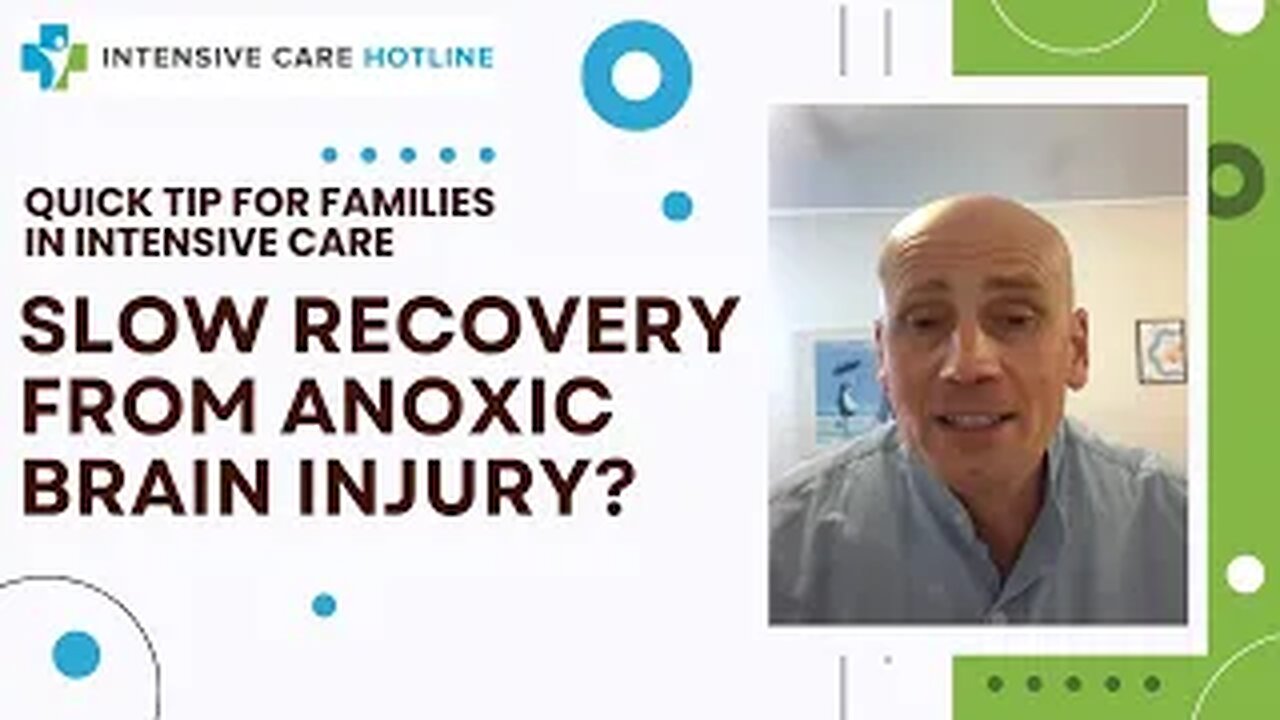
Quick tip for families in Intensive Care: Slow recovery from anoxic brain injury?
Quick tip for families in Intensive Care: Slow recovery from anoxic brain injury?
Book your free 15 minute phone consultation here
http://intensivecarehotline.com/scheduling-appointment/
Call directly 24/7
+1 415-915-0090 USA/Canada
+44 118 324 3018 UK
+6141 094 2230 Australia
Email support@intensivecarehotline.com
Get 1:1 consulting and advocacy
1:1 phone counselling
http://intensivecarehotline.com/one-on-one-counselling/
Become a member for families of critically ill Patients in Intensive Care
https://intensivecarehotline.com/intensivecaresupport-org-membership/
Immediate action steps http://intensivecarehotline.com/take-control-take-charge/immediate-action-steps/
https://intensivecareathome.com
And if you need a medical record review , click on the link and we can help you with reviewing your loved one’s medical records while they’re in ICU.
https://intensivecarehotline.thrivecart.com/review-of-medical-records/
Here are the phone options
One day 1:1 consulting and advocacy FACE TO FACE or via zoom $20,000 per day
https://intensivecarehotline.thrivecart.com/one-day-11-consulting-in-person-face/
30 days 24/7 unlimited 1:1 phone and email support, including speaking to doctors and nurses directly, as well as participating in family meetings over the phone for $3,299
https://intensivecarehotline.thrivecart.com/thirty-days-11-phone-consulting-us/
14 days 24/7 unlimited 1:1 phone and email support, including speaking to doctors and nurses directly, as well as participating in family meetings over the phone for $1,999
https://intensivecarehotline.thrivecart.com/fourteen-days-11-phone-consulting-us/
7 days 24/7 unlimited 1:1 phone and email support, including speaking to doctors and nurses directly, as well as participating in family meetings over the phone for $1,299
https://intensivecarehotline.thrivecart.com/seven-days-11-phone-consulting-us/
4 days 24/7 unlimited 1:1 phone and email support, including speaking to doctors and nurses directly, as well as participating in family meetings over the phone for $999
https://intensivecarehotline.thrivecart.com/four-days-11-phone-consulting-us/
2 days 24/7 unlimited 1:1 phone and email support, including speaking to doctors and nurses directly, as well as participating in family meetings over the phone for $499
https://intensivecarehotline.thrivecart.com/two-days-11-phone-consulting-us/
You don’t have to use the 2, 4, 7, or 14 days in a row and you can use the days at your own pace.
Here's the hour option
Book 60 minutes 1:1 phone consulting and advocacy for $249 (can be credited towards any of the options above)- click on the link
https://intensivecarehotline.thrivecart.com/one-hour-11-phone-consulting-us/
Or you can join the membership here where you have access to me in the membership area for only $97/month where I advise daily and where you also have access to more material including all of our eBooks! Furthermore, you’ll get a 20% discount for 1:1 phone consulting and advocacy if you are a member!
https://intensivecarehotline.com/intensivecaresupport-org-membership/
Hi, it’s Patrik Hutzel from intensivecarehotline.com with another quick tip for families in intensive care.
So, today’s tip is about, “A slow recovery in intensive care after cardiac arrest and anoxic brain injury.” So, we have many families in intensive care coming to us that say things like, “Look, my mom, my dad, my spouse has gone into intensive care after a cardiac arrest. They had a prolonged downtime.” Downtime is the technical term for no oxygen to the brain during cardiac arrest, during CPR (cardiopulmonary resuscitation). And they say, “Look, they’re not waking up. It takes a long time.” ICUs are putting pressure on us saying, “Look, we either need to proceed to end-of-life because it’s not in the “best interest” for their loved ones to survive.” Whereas in reality, patients after an anoxic brain injury simply need time to recover, to wake up.
And also, the question that you need to ask yourself is, what is quality of life? What is it? It’s a subjective measure, a subjective term, not an objective measure. Quality of life for you might be very different compared to what I perceive as acceptable for quality of life.
And in many situations, you also need to think about the quality of end-of-life. If someone after cardiac arrest and anoxic brain injury wants to approach end-of-life, maybe it’s part of their advanced care plan, then you need to think about the quality of end-of-life. Do you want to end life in intensive care on the intensive care team’s terms? Or do you want end-of-life, for example, at home, in a family environment with services like Intensive Care at Home?
Continuation...
https://intensivecarehotline.com/blog/quick-tip-for-families-in-intensive-care-slow-recovery-from-anoxic-brain-injury/
-
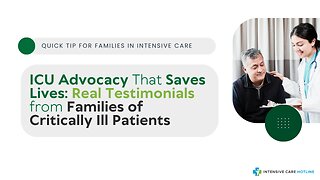 7:46
7:46
Intensive Care Hotline
11 days agoICU Advocacy That Saves Lives: Real Testimonials from Families of Critically Ill Patients
191 -
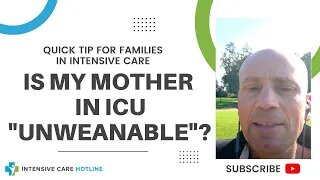 3:15
3:15
Intensive Care Hotline
2 years agoQuick tip for families in Intensive Care: Is my mother in ICU "unweanable"?
3 -
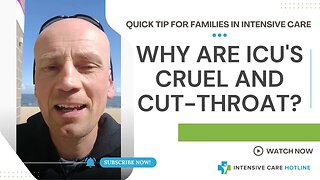 4:27
4:27
Intensive Care Hotline
2 years agoQuick tip for families in Intensive Care: Why are ICU's cruel and cut-throat?
28 -
 3:19
3:19
Intensive Care Hotline
2 years agoQuick tip for families in Intensive care: Can a tracheostomy be done while on ECMO?
24 -
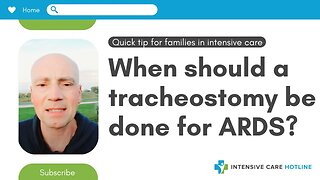 3:45
3:45
Intensive Care Hotline
2 years agoQuick tip for families in Intensive care: When should a tracheostomy be done for ARDS?
53 -
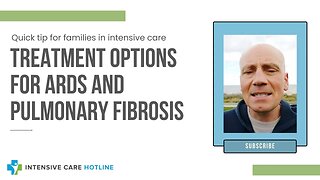 4:22
4:22
Intensive Care Hotline
2 years agoQuick tip for families in Intensive care: Treatment options for ARDS and pulmonary fibrosis
178 -
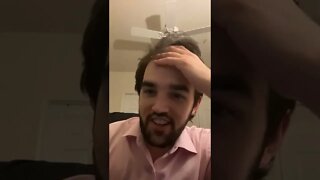 1:20:07
1:20:07
longjohndongo
2 years agoMy traumatic brain injury recovery story
-
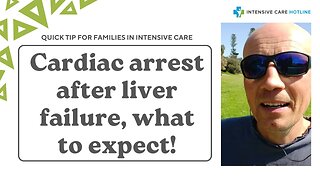 5:53
5:53
Intensive Care Hotline
2 years agoQuick tip for families in Intensive Care: Cardiac arrest after liver failure, what to expect!
70 -
 2:59
2:59
longjohndongo
2 years agoRecovering fully from brain injury.
2 -
 LIVE
LIVE
Amish Zaku
2 hours agoWar Thunder - Tank Tuesday
123 watching